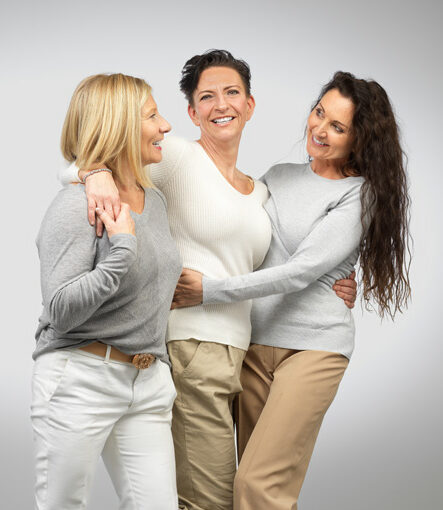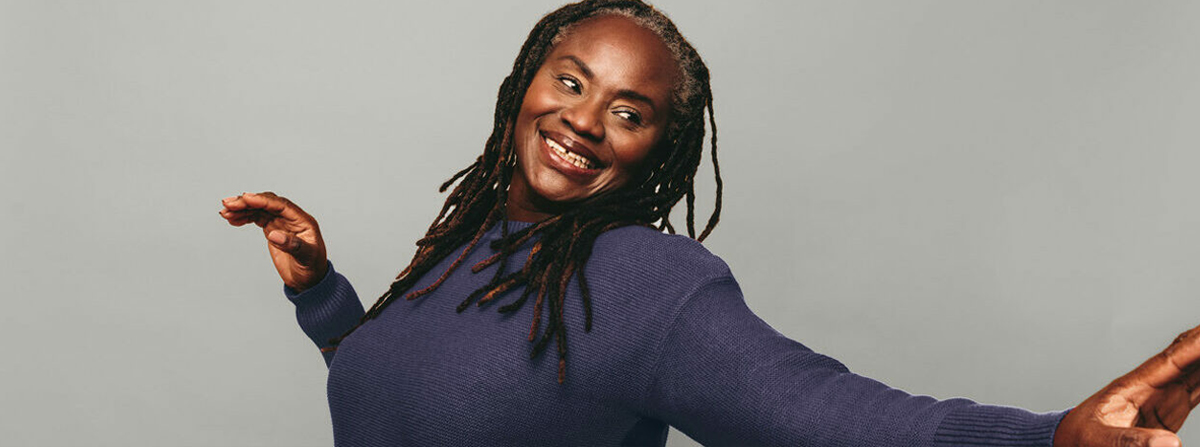Menopause Unveiled:
Exploring the Global Menopause Revolution
Midlife Redefined: Embracing a New Lease of Life
Menopause has historically been a topic shrouded in silence and stigma, influenced by cultural, societal, and medical factors. However, the future looks promising as efforts to increase awareness, education, and support gain momentum. By challenging taboos, fostering open conversations, and prioritising comprehensive care, the future holds the potential for women to navigate Menopause with more excellent knowledge, empowerment, and well-being
The Past:
Menopause has often been considered taboo due to societal expectations around femininity, youthfulness, and fertility. Women tend to view ageing and the cessation of menstruation as unfavourable, and this mindset has contributed to the silence surrounding Menopause.
Additionally, the portrayal of Menopause in popular culture is sometimes by negative stereotypes, such as the “menopausal woman” being portrayed as moody, irrational, or undesirable. These stereotypes further contribute to the reluctance to discuss Menopause openly.
Menopause is a complex biological process involving hormonal changes and potential physical and psychological symptoms. General education in schools & colleges, our health services and the press & the media about Menopause left many women unaware of what to expect and how to manage the associated challenges. This lack of knowledge perpetuates the silence around Menopause and can leave women feeling isolated and uncertain about their experiences. Is this how you think about your Menopause?

My Story:
When I first experienced perimenopause, I felt slightly ‘off-colour’. My periods had always been irregular and often disappeared during high stress or when training intensely for fitness competitions. Firstly, I noticed that my endurance was affected during my training sessions, and the feeling of post-workout fatigue became overwhelming. The fatigue remained, progressively eating into my everyday life. Being positive, I employed a hypnotherapist to help with my competitive fitness training to ‘carry on as normal’. Of course, that didn’t work. I honestly thought it was ‘all in my mind’. I never embraced the idea of perimenopause! I was 38 at the time. I battled for years with the fatigue.
In those days, the information available on Menopause was limited. I had never researched Menopause as, like everyone else, I thought that Menopause was something that only affected women in the fifties. Every time I sought help from my doctor, he dismissed me with the diagnosis of depression. I was not depressed! Finally, I insisted on hormonal blood tests. He relented and agreed to the blood tests. As a result, I was prescribed HRT by my Doctor. Initially, I refused to take it as the British tabloid newspapers had exasperated a scare that it was linked directly to cancer. I changed my mind when I could no longer fight the fatigue and hot sweats. Thanks to HRT, my world changed within a few weeks. My energy was back, and my training was on track within a month. Unbeknown to me, my bone density had been affected due to the lack of oestrogen during the build-up to Menopause. I now manage my bone density issues daily with resistance training, also known as strength training. I integrate a lot of mobility & functional movements into my workouts. Plus, I take bone density medication prescribed by a Rheumatologist. We all have our own stories, don’t we? What’s yours?
Historically, we saw Menopause as a medical issue where women used hormone replacement therapy (HRT) or other pharmaceutical interventions. However, the focus is shifting towards a more holistic approach that recognises the multidimensional nature of Menopause and considers the individual needs and preferences of each woman. This shift is crucial in ensuring that women receive appropriate support and care during this phase of their lives.

The Future:
Efforts to break the silence and raise awareness about Menopause are emerging. Public figures, celebrities, and influencers openly discuss their experiences, challenge societal taboos, and foster a more inclusive conversation.
Women increasingly share their stories and support one another through online communities and social media platforms. These platforms provide a space for women to seek information, find solidarity, and advocate for better menopause-related healthcare.
Moreover, healthcare providers are recognising the importance of addressing Menopause comprehensively by managing physical symptoms and prioritising mental health, sexual well-being, and overall quality of life. Menopause clinics and specialised healthcare services are emerging, offering tailored care and personalised treatment plans. There is also a growing emphasis on non-pharmaceutical approaches, such as lifestyle modifications, mindfulness practices, and alternative therapies. These can provide women with various options to manage their menopause journey.
Research on Menopause is advancing, leading to a deeper understanding of its effects and potential interventions.
Scientists are studying innovative therapies, such as hormone therapies with improved safety profiles, non-hormonal medications, and targeted treatments for specific symptoms. This ongoing research will likely contribute to developing more effective and individualised treatment options for all of us experiencing Menopause.
To find evidence that Menopause is becoming more openly talked about, you can explore various sources and platforms that reflect the current cultural and social landscape. Here are some places to look for signs of increased discussion and awareness about Menopause:

- Media and Publications: Look for articles, opinion pieces, and interviews in newspapers, magazines, and online publications specifically addressing Menopause. Significant publications often have dedicated health sections or columns that cover women’s health topics, including Menopause. These sources can provide insights into the current conversations and perspectives surrounding Menopause.
- Social Media:: Platforms like Twitter (X), Facebook, Instagram, and YouTube can be valuable sources to gauge the openness and visibility of menopause discussions. Look for hashtags related to Menopause, such as #Menopause, #MenopauseAwareness, or #MenopauseJourney, and explore posts and conversations associated with these hashtags. Influencers, bloggers, and organisations may share personal experiences, educational content, and resources related to Menopause.
- Online Communities and Forums::: Numerous online communities and forums welcome
discussion dedicated to Menopause. Websites like Menopause Matters, My Menopause Team, GenM, Health Unlocked have active communities where women share their experiences, seek advice, and support one another. These platforms can provide valuable insights into the openly discussed topics and concerns within the menopause community. - Women’s Health Organizations:Check the websites and publications of reputable women’s
health organisations, such as the North American Menopause Society(NAMS), the International Menopause Society(IMS), or local menopause-focused organisations. These organisations often provide resources, educational materials, and news updates related to Menopause, indicating the level of attention and discussion surrounding the topic. - Healthcare Provider Websites:: Visit the websites of healthcare providers, hospitals, and clinics focusing on women’s health. Many providers now offer dedicated sections or blogs that cover menopause-related topics. These resources may include articles, guides, or videos that aim to educate women about Menopause and its management.
- Research and Academic Journals:Explore research papers such as PubMed and studies published in medical and scientific journals. While these may not directly reflect the level of public discussion, they can indicate the growing interest and scientific advancements in menopause research. These papers cover topics such as hormone therapy, symptom management, and the impact of Menopause on various aspects of health and well-being. Also includes the latest advances in health and nutrition in the Menopausal years.By exploring these sources, you can gain a broader understanding of the current dialogue around Menopause and observe the progress in openly discussing this critical life phase for women.
Menopause Livia was born from my journey in health & fitness and personal struggles in Menopause. Though the symptoms present themselves very differently for every woman, an adjustment in lifestyle helps us whether we choose to take medication or not. Exercise, nutrition, sleep, and stress management play a vital role in how Menopause may play out over the years.
Here’s a PubMed link to lifestyle changes that may help you

Control your symtoms with Menopause Livia
Menopause Livia is backed by over 30 years of experience in health and fitness. We know the best place to start to take control of your symptoms is through nutrition and exercise with The Nutratonin Diet and Livia’s Resista methods. Contact Menopause Livia for a consultation (Resista ReView 1-1 with Liv) and find out the best way to start your journey to a happier, healthier menopause.
#menopausematters #internationalmenopausesociety #bristishmenopausesociety #menopause #womenshealth #menopauserevolution #menopausejourney #menopausedubai #menopauseuae #allovertheworld #menopausehealth #pubMedresearch #doyourresearch #menopausediscussion #socialmedia #movingforward #womenshealth #womensupportingwomen #menopausecommunity


